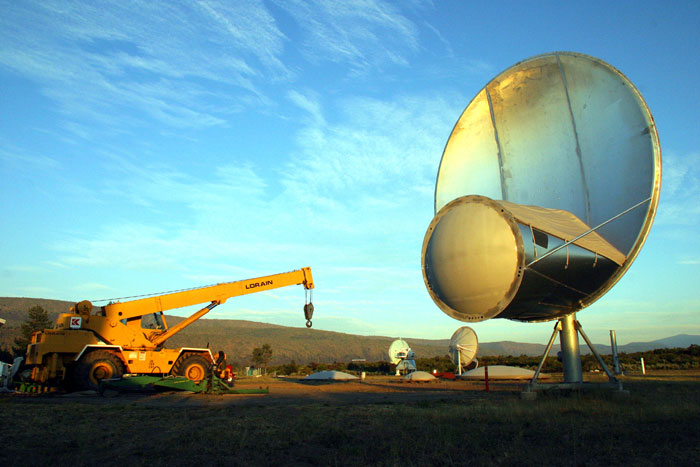SETI's Alien Search to Get Cash from New Start-Up

The cash-strapped SETI Institute is set to get money from a new start-up firm to aid in its search for alien life.
The start-up company, called Uwingu, recently launched with an aim to fill gaps in space research funding. The firm announced Wednesday (Aug. 29) that its first bundle of available cash will go to the SETI (Search for Extraterrestrial Intelligence) Institute's Allen Telescope Array (ATA), a set of 42 radio dishes in Northern California designed to pick up extraterrestrial signals.
"We don't have to wait to begin helping space research until we launch our first product, we're starting now!" Uwingu CEO Alan Stern said in a statement. "SETI is one of the noblest and most important space research enterprises," added Stern, a planetary scientist and the former associate administrator for NASA's Science Mission Directorate.
Uwingu launched a crowdsourcing campaign on IndieGoGo earlier this month to raise at least $75,000 in seed money, and it says half of the cash that comes in after it hits this target will go to the ATA's science team.
As of Thursday afternoon, Uwingu (which means "sky" in Swahili) had raised just over $29,000. The company's campaign closes Sept. 14.
Stern told SPACE.com earlier this month that the company seeks to offer an alternative to the traditional avenues for space research funding, like NASA and the National Science Foundation, especially as these agencies face harsh budget cuts.
SETI's Jill Tarter, the inspiration for heroine Ellie Arroway in the novel and movie "Contact," echoed those sentiments in Uwingu's Aug. 29 statement, saying space research programs are "all competing for a smaller resource pool."
"Even without the looming specter of federal budget 'sequestration,' available governmental budgets for space science, space research, and programs encouraging STEM [science, technology, engineering and math] education are shrinking fast," Tarter said. She recently stepped down from her longtime position as director of SETI, moving into a fundraising role.
Get the Space.com Newsletter
Breaking space news, the latest updates on rocket launches, skywatching events and more!
The ATA is located about 300 miles (500 kilometers) northeast of San Francisco. It began scanning the cosmos in 2007 for electromagnetic signals that could indicate the presence of an intelligent alien civilization. It was shut down for more than seven months last year amid budget issues and came back online in December 2011.
Follow SPACE.com on Twitter @Spacedotcom. We're also on Facebook and Google+.
Join our Space Forums to keep talking space on the latest missions, night sky and more! And if you have a news tip, correction or comment, let us know at: community@space.com.

Megan has been writing for Live Science and Space.com since 2012. Her interests range from archaeology to space exploration, and she has a bachelor's degree in English and art history from New York University. Megan spent two years as a reporter on the national desk at NewsCore. She has watched dinosaur auctions, witnessed rocket launches, licked ancient pottery sherds in Cyprus and flown in zero gravity on a Zero Gravity Corp. to follow students sparking weightless fires for science. Follow her on Twitter for her latest project.









